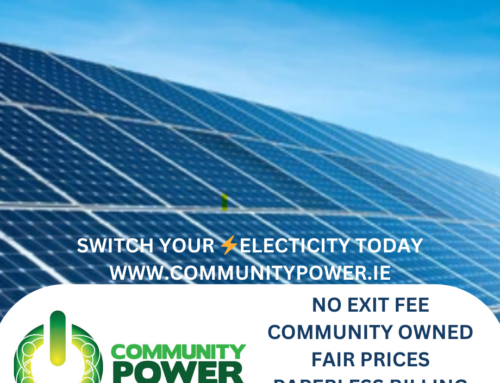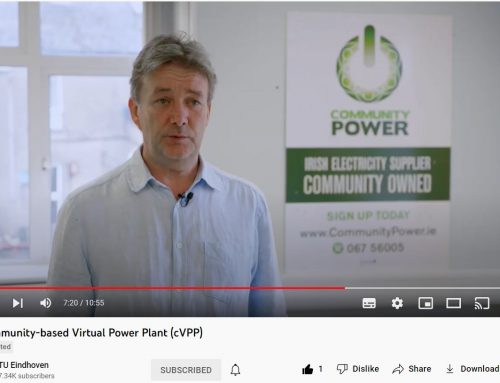The Government are consulting on the next renewable electricity support scheme, and there is really good news for community led renewable projects.
A competitive auction is proposed, in line with EU rules on competition to keep prices low. As in all auctions, there will be winners and loosers, and in effect this scheme will determine which renewable electricity projects around Ireland will be built and which ones won’t. We massively support this happening, and the proposed date of June 2020 couldn’t come sooner.
We are also delighted with the recognition that community led generation projects cannot compete in a general auction, so the preference category for community led projects is very welcome even if the 30 GWhrs available represents less than 1% of the auction pot!
Members of our groups were at the jam-packed consultation days in both Sligo and Tipperary, which were excellent participative consultative forums.
Communities are hard things to define! They mean different things to different people, in different places. In Ireland we are lucky enough not to be the first to struggle with this. Europeans have been supporting and defining energy communities for decades, and have loads of lessons learnt to share.

Visitors from Dingle at Templederry Community Owned Wind Farm
It has always been our goal to build community and citizen owned renewable energy generation projects, and allow the benefits from selling that renewable electricity to flow back into communities and citizens and to be shared by the many rather than the few! We want people and communities engaged in the energy transition and really taking ownership of it, for a faster and fairer response to the climate crisis.
Here’s our take on the consultation related to the Communities Section:
- Given 99% of the auction pot is for developer led renewable projects. We think 100% of the community led pot (30 GWhrs) should be community/citizen owned. There is a suggestion that developers could partner with communities in a 49/51% share, but that is effectively halving this pot, which would be unfortunate.
- For the definition of a community:
- Legal entities that are based on unrestricted open and voluntary participation should be allowed. We recommend that democratic decision making processes are required such as one member one vote, and where the balance of power on a board always rests with democratically elected non executive members. Community projects should offer a minimum of 150 shares or memberships and that each share or membership should be limited to a maximum allotted share capital of €20,000. In practice this will mean legal structures such as Co-op, PLC, CLG are allowed with Ltd. Companies will not.
- It is extremely had to define proximity. Ideally all renewable energy generation projects will be located ‘nearby’, and it is certainly the case that the closer the better. Proximity is not clearly defined in the Terms and Conditions at present, and we support this non restrictive approach, allowing communities to define it for themselves when the viability of projects is under consideration. Particularly because without a reform of gird connection processes, communities often have no choice on proximity if their closest site cannot be affordably connected to the grid.
- We don’t think projects should be limited to 5 MW. That is less than 2 modern wind turbines, and we think the support should be from Microgeneration up, to allow small generators and communities to start with projects below the 1 MW scale and build to bigger projects. There should be no additional subsidy for these projects, but they should be able to sell their power at the chosen price.
We very much welcome the proposal for enduring supports with mentors, trusted intermediaries, feasibility grants, grant to loan arrangements etc. Access to technical support and advice is essential for the appropriate development of any renewable energy project and much support for the projects currently in preparation by Community Power members has been provided through the Tipperary Energy Agency and the SEAI energy mentors. A one-stop-shop model is suggested as most appropriate with continuous, uninterrupted support, and we suggest that the current network of energy agencies could provide that support.
You can read our formal submission here.




